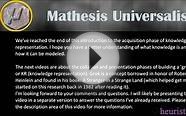
What does semantics meaning?
Followup on this earlier question, )
There is a reasonable fear that attributes will be used to create language dialects.
The recommendation is to use attributes to only control things that do not affect the meaning
of a program but might help detect errors (e.g. [[noreturn]])
or help optimizers (e.g. [[carries_dependency]]).
Yes, this argument was used. I’m (even) more conservative than Bjarne on this one.
People spoke up for two main different views on the question, “what does it mean to say [[attributes]] should not affect language semantics?” For convenience I’ll label these as the “weak” and “strong” views. Both views agree that if a program is valid both with and without the attribute, it should have exactly the same meaning both ways. Where the two views/camps differ is on whether it counts as “changing the meaning of the program” if a program that is valid if the attribute is ignored is rejected (fails to compile) if the attribute is observed:
- The “weak” view says that’s okay because it didn’t really change the meaning of code that could ever execute, it just caused it to fail to compile. (I know, [[noreturn]] seems like it’s doing that… but it actually doesn’t quite meet this definition in my opinion, see below.)
- The “strong” view, which I strongly support, says that calling a program illegal not only is the most dramatic semantic change possible, but also should be considered a nonconforming extension because it rejects code that is legal in the standard. (I know, [[noreturn]] in particular is standard… but it’s still problematic for this reason, see below.)
On principle, I do not like opening the door to let compiler writers use [[attributes]] as an excuse to not respect legal ISO C++ programs. And I say that as someone who works on a C++ compiler team and actively does C++ language extension design, and having the excuse of disabling part of ISO C++ that I don’t like by throwing in an [[attribute]] could be useful. Don’t get me wrong, there are corner cases of C++ I would like to turn off, but I try hard (and so far successfully) to refrain from doing such a thing without ISO C++’s blessing because it would break source code portability. Encouraging the view that nonstandard [[attributes]] can be a legitimate excuse to reject conforming C++ programs strikes me as putting a live grenade in a public square with a “pull me” tag on the pin. The whole point and primary benefit of having an ISO standard for C++ is to guarantee source portability; this weakens that, and for that reason I view it as a dangerous position to take.
However, in general the “weak” interpretation prevailed, and on those grounds [[noreturn]] and [[carries_dependency]] remained an attribute. I didn’t fight it because at least we got to remove [[final]], [[override]] and [[base_check]] as attributes, which was my primary concern since those would see far more use, and as long as we fixed those I was happy to say I could live with the others in order to get a consensus standard.
You might also like








